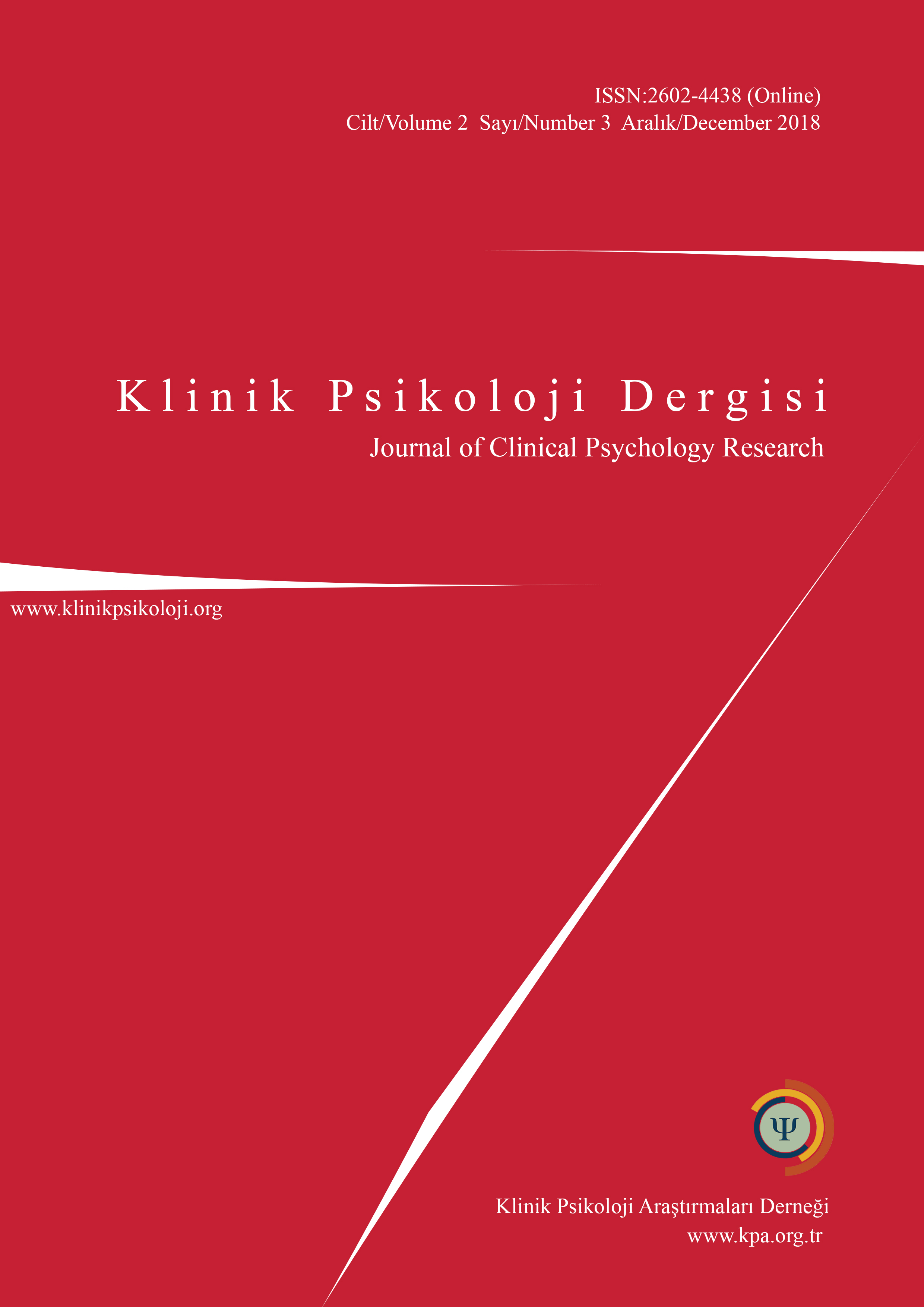Beş Faktörlü Bilgece Farkındalık Ölçeği-Kısa Formu’nun (BFBFÖ-K) Türkçe Uyarlaması
Turkish adaptation of the Five Facet Mindfulness Questionnaire - Short Form (FFMQ-S)
Author(s): Handan Deniz Ayalp, Nesrin Hisli ŞahinSubject(s): Psychology
Published by: Klinik Psikoloji Araştırmaları Derneği
Keywords: mindfulness; mindfulness scale; Turkish adaptation;
Summary/Abstract: In recent years, mindfulness has been acknowledged as an important factor for physical and psychological well-being. At the same time, it is conceptualized as a personality characteristic aswell as an intervention technique. Several assessment instruments were developed to measure mindfulness. Among these, Toronto Mindfulness Scale (TMS), Mindful Attention AwarenessScale (MAAS) and Five Facet Mindfulness Questionnaire (FFMQ) were adapted to Turkish language and culture. In the meantime, a short form of the Five Facet Mindfulness Questionnaire(FFMQ) was developed. The aim of the current study is to conduct a Turkish adaptation study forthis short form. The other scales used in the study included Demographic Information and Personal Evaluation Questionnaire, Toronto Mindfulness Scale (TMS), Difficulties in Emotion Regulation Scale (DERS), and the Brief Symptom Inventory (BSI). The study sample consisted of268 participants (165 women and 99 men), with an age range of 18-75 (M = 25.59, SD = 9.99).The analyses revealed that the five-factor structure of the original form was preserved and other psychometric properties such as validity and reliability were found to be appropriate in the Turkish adaptation of the short form of the scale. In the light of the findings obtained, it is proposed that the Short Form of the Five Facet Mindfulness Questionnaire (FFMQ - Short Form) can be used with confidence in mindfulness-related research in Turkey.
Journal: Klinik Psikoloji Dergisi
- Issue Year: 2/2018
- Issue No: 3
- Page Range: 117-127
- Page Count: 11
- Language: Turkish

